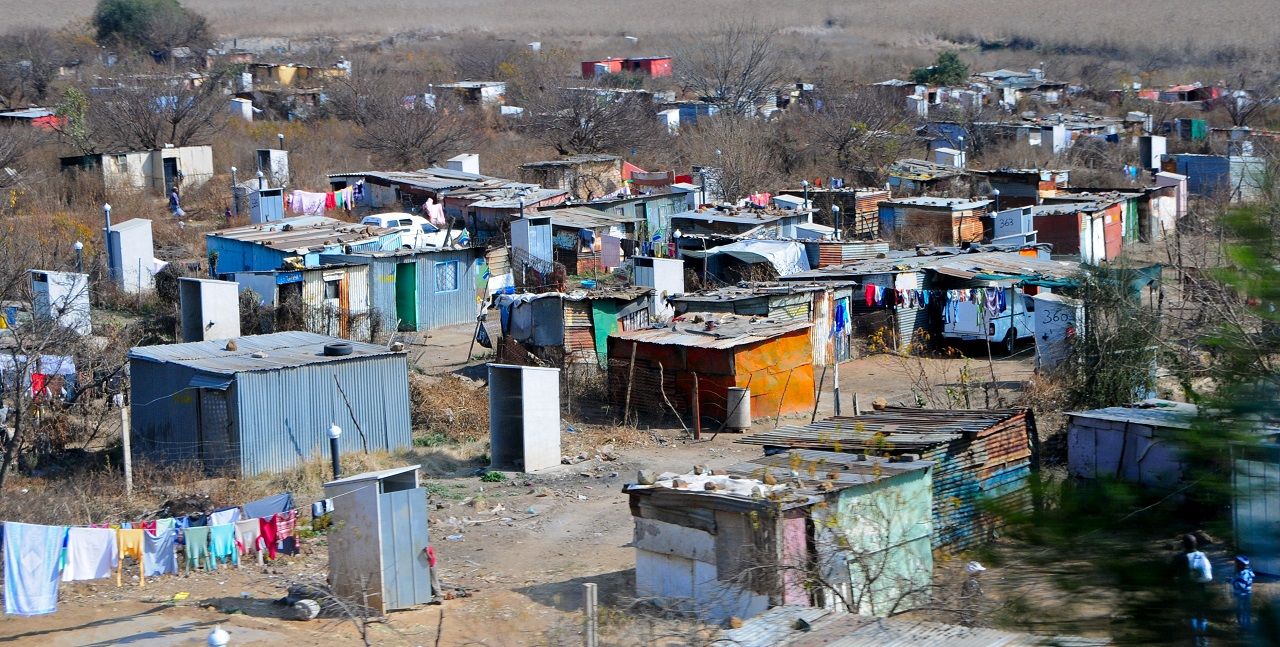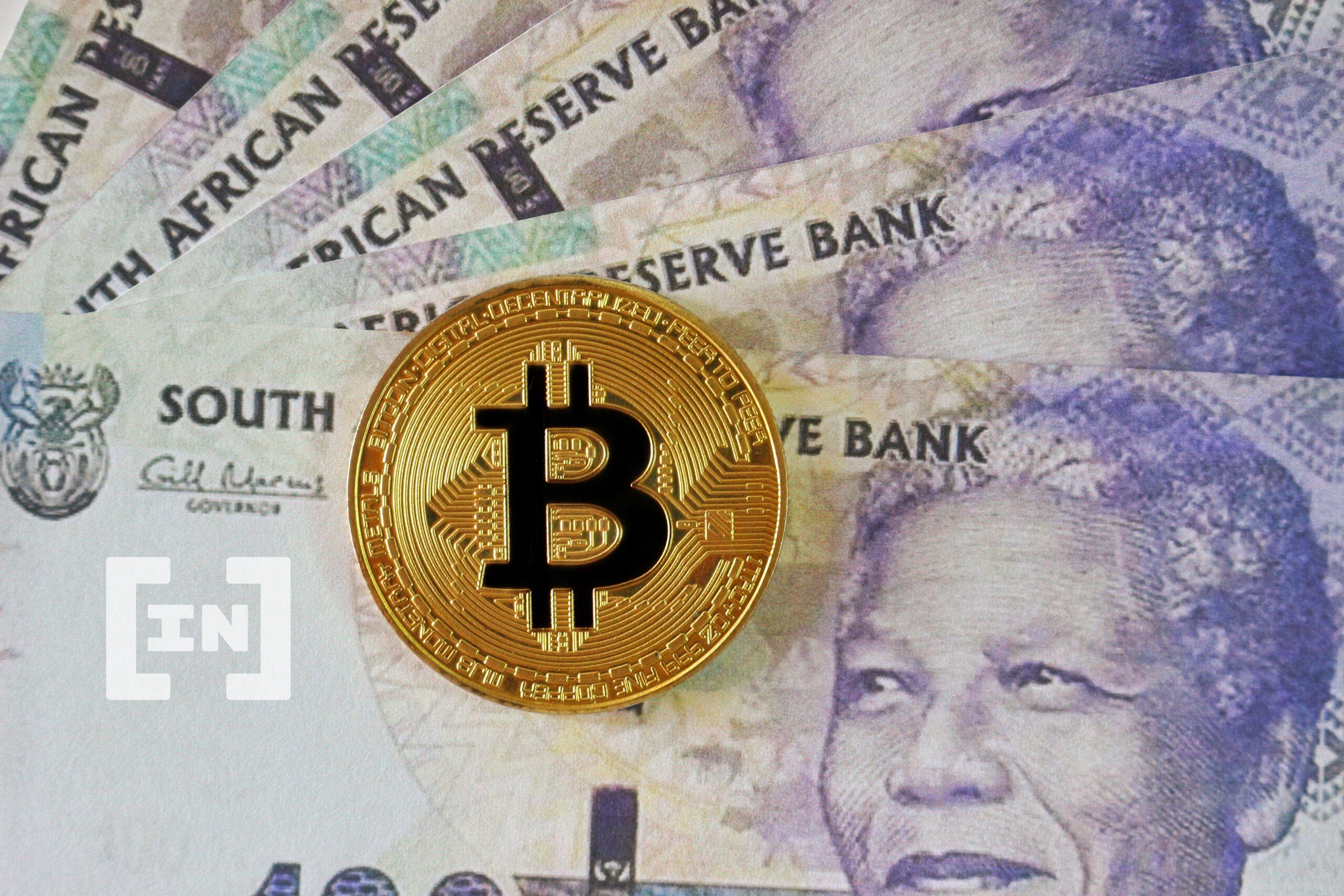As crypto acceptance broadens, impacts on the lives of those who hold it grow too. South African Hermann Vivier used Bitcoin to empower township communities who could benefit the most from crypto financial freedom.
Cryptocurrencies, particularly Bitcoin, are no longer part of an underground movement with a little-known technology. These digital assets now intertwine with some of the financial industry’s biggest move makers.
Over the last year, data revealed that Bitcoin processed 62% more transactions than PayPal each quarter. It was a big year for PayPals’ crypto integration in countries around the world.
Additionally, VISA, the financial services giant, reported that nearly one quarter of global businesses welcome payments via digital currencies. With such wide acceptance from legacy institutions, access to crypto as a financial instrument is important.
For some, access to crypto is not just important, but a component to financial inclusion not offered by traditional services. In Pakistan a brother duo used NFTs to fundraise and bolster a community around their charity which serves water-insecure communities in the region.
In the Philippines the crypto-based play-to-earn game Axie Infinity has helped people from a diverse range of backgrounds have access to financial tools.
Meanwhile in South Africa Hermann Vivier saw Bitcoin’s potential to reach an underserved community in a local township. He started Bitcoin Ekasi, bringing crypto financial services to the township, through his already existing project The Surfer Kids’. Kids in the program come from some of the poorest local townships: Isinyoka, Asazane, and Fairview.
Learning By Example
To first understand the innovation behind the idea of bringing financial access via Bitcoin in South African townships, it’s important to understand what they are in the first place.
In the context of South Africa, the terms “township” and “location” typically refer to “the often underdeveloped racially segregated urban areas. From the late 19th century until the end of apartheid they were reserved for non-whites, namely Indians, Africans and Coloureds,” according to Wikipedia.
Most townships are on the periphery of more established towns. They have less than desirable living conditions. As with many other marginalized communities, access to financial tools and services is more often a challenge.
In 2019, Vivier discovered the Bitcoin Beach project. It started in El Salvador from an anonymous Bitcoin donation to the town of El Zonte. The donation was used to build Central America’s first wave park. The introduction of Bitcoin through the initial donation increased Bitcoin usage and transactions in the area.
The founders of the project told BeInCrypto in a previous interview that “The main reason for creating this project was to see a change in the community. A change that opens up new opportunities for us and that the entire community benefits from these new opportunities.”
Hermann Vivier saw how something similar could impact his own community. Moreover the viability of Bitcoin in the greater region. “What Bitcoin Beach did was illustrate that yes, Bitcoin is not only a speculative asset, or a store of value, but it can function as a medium of exchange, bringing it one step closer to a fully fledged and viable alternative currency.”
“And that’s what we are trying to emulate with Bitcoin Ekasi: creating a Bitcoin economy in a South African township,” Vivier said.

Equal Access
As with Bitcoin Beach, Vivier’s own project started with an anonymous donation, “I spent the months of June, July and August 2021 educating the The Surfer Kids’ coaches on all things related to Bitcoin, while they worked to identify and onboard shops in the township willing to accept Bitcoin as payment for groceries. By the end of August we had onboarded at least one shop and we started paying The Surfer Kids’ coaches a small portion of their salary in Bitcoin, which they spent on buying groceries.”
Shortly after the first store agreed to the project more followed suit.
“So far, we’ve on-boarded three shops, and since August our coaches have spent just over R6,000.00 (roughly $400) worth of Bitcoin between those three shops.”
By slowly integrating local businesses, people have more financial opportunities. Moreover, financial opportunities without the same familiar traditional barriers.
“We’ve identified a total of 13 shops in the township and we’ve approached about half of them so far. The feedback is generally positive. The proverbial penny drops for the vendors as soon as we can illustrate that Bitcoin is real money that could be easily converted back into fiat currency, or used to buy real-world goods and services through a variety of different platforms.”
The project has an updated map of prospective and participating local locations.
Financial Freedom For All
For Hermann this is more than stimulating a local economy, it’s about empowerment and freedom.
“One of the most important lessons learnt from the Bitcoin Beach project is the understanding that it’s a misconception to think that poor people aren’t interested in saving. In reality, low income individuals have simply never had access to an efficient form of savings. Fiat money is a melting ice cube. Even if you don’t understand what inflation is or where it comes from, nowhere are the effects felt more acutely than in communities where people live hand-to-mouth.”
Vivier highlighted that money is an unavoidable instigator of global productivity. However the system we have now often favors a very specific portion of consumers. If projects like Bitcoin Beach and Bitcoin Ekasi can target vulnerable groups, Bitcoin can provide a type of financial freedom.
“Bitcoin presents an alternative. A sound, fair, transparent and, most importantly, decentralized system of money. Widespread adoption of Bitcoin could alleviate many of the otherwise apparently unsolvable social ills that plague our societies. Things such as wasteful and wanton government spending, corruption at the highest levels of finance, and endless wars.”
Crypto in South Africa – Will it lead to financial freedom?
In general Bitcoin acceptance and regulation in South Africa is a hot topic. Earlier this week prominent crypto CEOs in the country said 2022 is a big year for federal regulatory adoption.
If this manifests in South Africa, as it is with many places, the Bitcoin Ekasi project will open many doors. Just as Bitcoin Beach preceded El Salvador’s mass adoption of crypto.
“It needs to be illustrated that Bitcoin Beach wasn’t just an isolated fluke. If Bitcoin Ekasi is successful then it becomes less plausible to denounce Bitcoin as a legitimate, alternative and better currency, available for anyone to use.”
Projects at the intersection of finance and technology in underserved communities, highlights the indiscriminatory nature of crypto.
“Ultimately, if Bitcoin can succeed as a medium of exchange and a store of value in a South African township and help that township community with financial empowerment, then there’s very little reason to imagine that Bitcoin cannot succeed anywhere else.”
Want to discuss financial freedom or anything else? Then join our Telegram group.
Disclaimer
Following the Trust Project guidelines, this feature article presents opinions and perspectives from industry experts or individuals. BeInCrypto is dedicated to transparent reporting, but the views expressed in this article do not necessarily reflect those of BeInCrypto or its staff. Readers should verify information independently and consult with a professional before making decisions based on this content. Please note that our Terms and Conditions, Privacy Policy, and Disclaimers have been updated.


